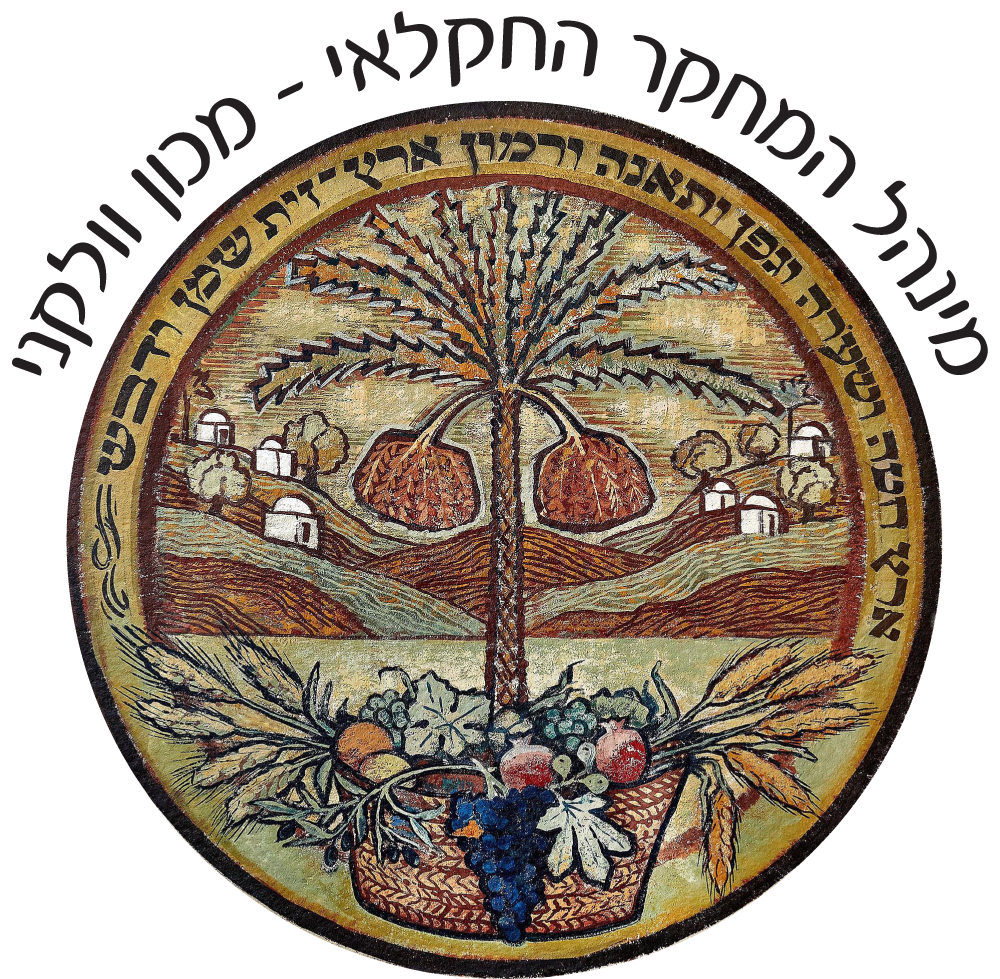Tamar Shemer Ph.D.
Principal Investigator and Head of the Fruit Tree Sciences Unit of the Newe Ya'ar Research Centre.
- Newe Ya’ar Research Center
- Researchers at the Neve Yaar Research Center
- Newe Ya'ar Research Center, Agriculture Research Organization. P.O BOX 1021, Ramat Yishay, 30095, I
- +972-559816097
Biography
Dr. Tamar Azoulay-Shemer leads the Fruit Tree Sciences Unit at the Newe Ya’ar Research Center, part of the Volcani Institute (ARO) in Israel. She holds a B.Sc. and M.Sc. in Biology from Bar-Ilan University and a Ph.D. in Horticulture from the Hebrew University of Jerusalem, where she studied chlorophyll breakdown in fruit and leaves. Her postdoctoral research at UC San Diego focused on stomatal regulation in response to environmental changes. Dr. Azoulay-Shemer’s lab explores plant responses to stress, including temperature extremes, drought, and rising CO2 levels, with an emphasis on photosynthesis and water balance. Tamar leads, together with her team members, different breeding programs of deciduous fruit trees, including the Israeli almond breeding program. Through research involving physiological, molecular, and genetic methods, the fruit and tree unit in Newe Ya’ar develop new varieties, integrating traits that confer environmental resilience, resistance to pests and diseases, and improved fruit quality, under the challenges posed by climate change.
Education
-
1997 – 2000
B.Sc. in Biology at Bar Ilan University, The Faculty of Life Sciences. Biotechnology Excellent Student Program, Graduated with Honors.
-
1999 – 2001
M.Sc. in Biology at Bar Ilan University, The Faculty of Life Sciences. Title of thesis: "The roles of the testicular protein Aykb1 and its interaction with the oncogenic kinase Ayk1/IARK1 in mouse" Supervision by: Dr. Benny Motro Fast Track to MSc (B.Sc.+M.Sc. in 4 years) Graduated with Honors.
-
2004 – 2011
Ph.D. in Horticulture at the Faculty of Agriculture, The Hebrew University of Jerusalem. Title of thesis: "Regulation of the enzyme chlorophyllase and its role as a key enzyme in chlorophyll catabolism" Supervision by: Dr. Yoram Eyal and Prof. Eliezer E. Goldschmidt.
-
2012 – 2017
Postdoctoral position at the University of California, San Diego, with Prof. Julian I. Schroeder. Research subject: “Studying the role of guard cell photosynthesis and starch biosynthesis in CO2 and ABA-induced stomatal movement responses”.
Research Interests
Dr. Azoulay-Shemer’s current research integrates fundamental plant science with applied agricultural practices. Her recent work includes innovative approaches to enhancing stress tolerance in fruit trees, including pioneering studies on the use of stem photosynthesis in almonds and methods to prevent chilling damage in mango trees. Her research is supported by numerous national and international grants, and she is actively involved in mentoring graduate students and postdoctoral researchers.
As a leader in her field, Dr. Azoulay-Shemer has made significant contributions to both academic and applied plant sciences, receiving numerous awards and recognitions for her work. She is also involved in various agricultural outreach programs, contributing to the development of sustainable practices for fruit production under the pressures of climate change. Her work has been published in high-impact journals, and she continues to influence the scientific community through her research, editorial roles, and participation in international conferences.
Research Projects
Almond trees in the face of climate change
Dr. Tamar Azoulay-Shemer’s current research continues the long-standing tradition of almond variety improvement at the Newe Ya’ar Research Center, where efforts to enhance almond cultivars have been ongoing for decades. Her team focuses on the development of advanced almond hybrids through molecular breeding techniques and field trials. A key aspect of this research is the integration of valuable traits that were lost during the domestication of commercial almond varieties, such as resilience to environmental stress, pest and disease resistance, and improved fruit characteristics.
Leading the Israeli Almond breeding program, Dr. Azoulay-Shemer’s team is working to incorporate additional traits into almond hybrids that will enhance their resilience to biotic and abiotic stresses. This includes pest and disease resistance—such as to the almond wasp and the bacterial pathogen Xylella fastidiosa—and improved physiological traits. The aim is to genetically characterize resistance traits, using molecular markers and develop new hybrids that can thrive under the challenges posed by climate change.
Moreover, her research highlights the unique physiological trait of stem photosynthesis capability (SPC) found in the wild almond species Prunus arabica. Our findings indicate that SPC provide the ability to perform photosynthesis year-round via the tree stems, even during the winter, after leaf fall. This trait is characterized by delayed bark formation, chlorophyll-rich palisade-like parenchyma, functional stomata, and a specialized vascular system. Our studies focus on identifying the physiological and their genetic components of the SPC, with the goal of integrating them into commercial almond cultivars. Offering a promising avenue for developing resilient, high-yielding plants adapted to climate challenges.
Chilling Damage in Mango Trees: A Pioneering Research Project
Dr. Tamar Azoulay-Shemer’s lab is conducting groundbreaking research on chilling damage in mango trees, addressing a critical challenge in tropical and subtropical fruit production. Mango, the second most important tropical fruit crop globally, is particularly vulnerable to cold stress, especially in Mediterranean climates. The research focuses on “night-cold-day-light” stress, a common phenomenon in temperate mango-growing regions where nighttime temperature drops are followed by warm, bright days. This type of stress can significantly impact tree physiology and yield. The project combines physiological and molecular analyses to understand the mechanisms of cold stress response in mango trees. By integrating basic and applied research approaches, Dr. Azoulay-Shemer’s team aims to develop effective, economical treatments to mitigate cold stress injury. This work is crucial for the mango industry, which currently lacks cost-effective solutions to combat chilling damage, and has broader implications for adapting tropical fruit production to the challenges posed by climate change and increasing weather extremes.
CO2 Stomatal conductance regulation
Stomatal pores are responsible for plant water loss. CO2 levels in leaves are determined by respiration, photosynthesis, stomatal conductance and atmospheric [CO2]. Low concentrations of CO2 cause stomatal opening, whereas elevated CO2 concentrations trigger stomatal closure. It has been suggested that plant hormones involve in stomatal conductance regulation. Our aim is to detect plant hormones that are involved in CO2 induce stomatal movement. We study this complex mechanism using reverse genetics, physiological, metabolomics, and biochemical approaches.

